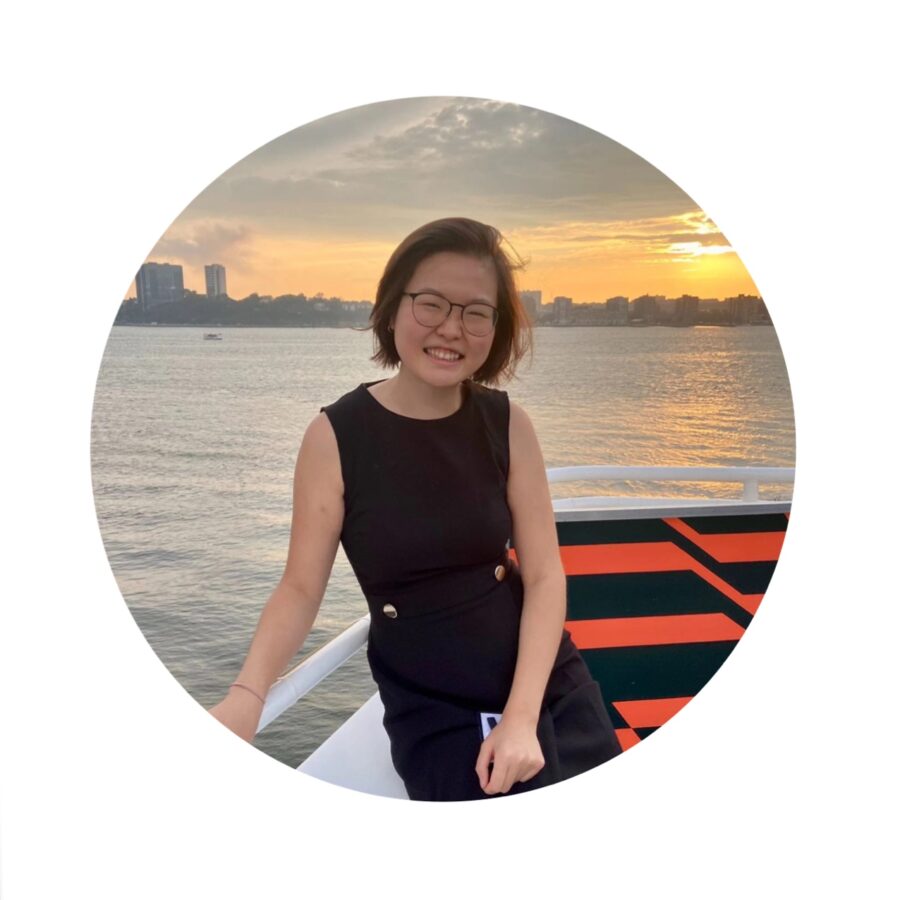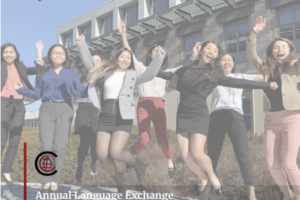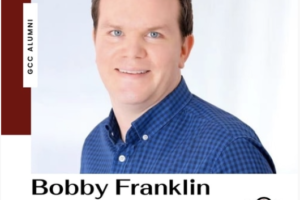Introduction
Please give a short self-introduction
Hi, I’m Gwen Shi, my Chinese name is Shi Yucong. I grew up in the US and went to Cornell for college. I was pretty involved with GCC while I was at Cornell. I would say I definitely met a lot of friends who I still talk to even to this day, it’s a really great community, and the fact that there is this global network is awesome. After graduating I went into equity research, so first with Bank of America and then went to a smaller boutique bank called Cowen which just got acquired by TD Securities. After that, more recently, I actually went into corporate finance and so went to a healthcare company called Omada Health which is based in San Francisco, I have been there ever since
GCC
Could you please share your experience at GCC? What was your most memorable experience?
I joined GCC as a sophomore, and I remember the interview process and being really nervous, but then everyone ended up being really chill. Also, I think people are just very driven, very hardworking, and also just really down to hang out to have a good time. And the community that I built there was really strong. We have a lot of events and socials. There’s also a lot of mentorship with professional development and hearings from seniors about how they started their finance careers and what they liked about being in finance. I think that was all very helpful.
We also did go to the GCC summit at Yale one year. I didn’t realize how big the organization was until we went to the summit. We had guests such as the head of Morgan Stanley Asia. I felt that this organization goes beyond our little Cornell chapter, it is way more global than I expected and it has really strong connections.
How did your experience with GCC help you in your later career? How did you transfer your skills and knowledge learned at GCC into your own professional work?
Even now we still have New York Cornell GCC meetups every few months or so. And I think there are a lot of connections that you might not have had without that kind of environment, such as having friends working in crypto that I don’t think I would have necessarily talked to them or become friends with them if it was not for GCC. There are all these connections that we have made over the years that I don’t think it would have otherwise.
About Work
You majored in Applied Economics and Management. Many of your internship experiences are closely related to financial analysis. Could you please share your experience in finding those internships as an undergrad? What are some skills that you think are essential for those jobs?
I knew I did not want to go into investment banking, so I was trying different random things in finance. I did a middle market commercial banking internship at Wells Fargo and then I went into a legal internship in DC and then I got into equity research. So, definitely tested the water a little bit. From my example, I pretty quickly ruled out the middle market banking and the legal internship because I realized that those were not a good fit for me and it didn’t have the kind of intensity that I was looking for.
As for interviewing. I’d say that with any interview, just be comfortable and natural. You know that you have a good interview when people know you are easy to talk to and they like you. So try to aim for that. For sophomores and even juniors, technical expectations are not that high. So do what you can to prepare for technicals, but just try to be likable and tell your story with a message that you try to convey.
Could you please share your experience in Equity Research at Bank of America and Cowen? What was the biggest takeaway from your experience there?
In general, equity research is a little bit different from banking, so if anybody is interested in it, I will be happy to talk to them.
In banking, you might rotate on different deals and work with different teams, such as covering consumers might mean that you cover a health tech consumer or a DTC widget or something else and you will rotate. Whereas in equity research, you really focus on being a subject-matter expert, you stay on the same team and try to learn as much as you can about a single industry. You understand the industry more than the research generalist and those who work in a bank. From my perspective, I really enjoyed that and I like the idea of being a researcher and having a more academic lens on things. It’s a lot of writing, so if you don’t like writing, that’s probably something to consider. I think people kind of underestimate how much publishing and writing there is.
My biggest takeaway is that even as many people complain about being in banking or complain about being in the typical finance environment and how stressful and intensive it is, there are a lot of merits to it. For instance, it can accelerate your career and can give you a much bigger focus on lens through which you have the entire working world and you would get into a specific role. So when I first transitioned to corporate, I was actually really surprised by how little some of my peers knew about overall M&A markets, stock markets, valuations, and those pretty basic concepts that you just pick up when you’re in a Wall Street environment or banking environment. So I think, yes it’s difficult; yes, it’s intense; yes, the hours are horrible, but once you leave you do have a tool to equip yourself with.
Currently, you are working at Omada Health. What does a typical day look like for you?
We are based in San Francisco, so I work West Coast hours, but I’m based on the East Coast. I would say I log in around 10:00~10:30 AM and then probably end work around 9:00 or 10:00 PM. So it’s still like a 12 to 14-hour work per day.
The biggest shift I would say is the mentality. The workload is still pretty intense, but I think that it’s a different mentality, When you are in Wall Street, banking, finance, and that kind of environment, there is a very clear deadline and everybody’s working to meet the deadline and everything has to be turned around “ASAP”. “ASAP” is the underlying implication. Whereas in corporate, it is more about “do this when you can”, and there’s not necessarily someone who’s chasing you down. So I think things can be a little bit slower in that sense, even though the workload is higher.
For example, in equity research, you might be covering earnings. If a company reports earnings at 4:00 o’clock and earning call starts at 5:30. Within that one-hour-and-a-half window, you need to write the earnings note and publish it before the call starts. So say you have half an hour to write the note, half an hour for it to go to publishing, call some people before the call, and then at 5:30 the earning call starts. So that’s a very tight timeline, and in that timeline for at least three to four hours you’re not really thinking about anything else, you’re just trying to get the stuff out the door. I think within corporate finance, there’s definitely not that urgency. Nothing is so urgent as in “get this to me in the next half hour or else this is unacceptable”. Things are definitely a little bit more fluid and flexible. You don’t feel so tied to the desk. There’s a little bit more of a shift in your personal life, too, such as taking care of things. For instance, if I need to go to a doctor’s appointment, it won’t be like a whole issue of “Oh my God, I need to do a doctor’s appointment. But, I need to tell the doctor that I need to print out earnings, I can’t leave, and I need to cancel my doctor’s appointment”. There’s not that kind of urgency anymore.
What made you change your career path from Equity Research to Investor Relations? How did you navigate through several transitions in your career?
I think it was probably prompted because of COVID. For me, a lot of equity research involves evaluating what other people/companies are doing and critically analyzing what they’re doing and determining if you think that their strategy is good or not and whether or not you would invest in their stock. During COVID at least, we were covering many healthcare companies, like CVS, Walgreens, United Healthcare, Cigna, etc, A lot of these companies were dealing with COVID in real time and they were standing up COVID clinics or doing COVID testing. At the time, I was like, wow, these companies are actually addressing a real-world pandemic problem and I am writing a research report about what they are doing to investors, that really is just going into the void. Even more is that there is a lot of equity research published every single day, so you don’t necessarily know if your note is going to be picked up or get a lot of attraction. There are a lot of things you can do to encourage that but a lot of the time, your words and your writing just go into the void. Hence, I definitely feel that I need to do something that’s closer to the ground. I need to be somewhere where I’m making a real, tangible impact and so decided to move to corporate finance.
Suggestions
Do you have any other advice for college students or even recent graduates?
I feel like a lot of times people focus on what other people tell them to do. If someone says: “Banking is the most prestigious thing you can do and you should just go into there”. Once you actually get there, you’re gonna be working 16, 18, 20 hours a day in this role, and because you’re acting on someone else’s encouragement or someone else’s suggestion, you might hate it. So definitely be true to yourself, be honest with yourself and determine what you personally want as a human: Is the prestige all you really care about, or is there something that’s more important to you?
Finance can be very intellectually stimulating and then there are aspects of it that are not stimulating at all, where you might be just printing something or like aligning logos for like hours. For people who are bright, intelligent, accomplished, and are overachievers, it might seem like, “wow, why am I doing this work?” So just be true to yourself, look inward, and ask yourself: “What do I want to do with my life? Where do I want to start my career?” Think about that before listening to all the other voices telling you: go do banking, go do this and that. It’ll make you happier after you graduate.









